Quick Links
OK, so you have heard about the zero waste lifestyle, maybe you even read the book Zero Waste Home by Bea Johnson and want to become a part of it.
First of all, congratulations, it is a brilliant move and here is why:
- You are going to be healthier from now on. (fewer chemicals in your system)
- You are living in harmony with the planet.
- You create less to no waste.
- Your life just got a whole lot simpler.
- You will spend less money (sometimes) and be happier with your purchase.
- You will support local businesses.
- You buy quality products (more expensive at first but pay off in the long run) over quantity.
- You will eat healthier.
- You’ll be doing your part to preserve the planet for future generations.
- Your efforts will help beautify natural areas and decrease littering.
- You will reduce your exposure to toxic chemicals and artificial colors and sweeteners.
- You’ll become more self-sufficient.
But where to start? What to buy? What to throw away?
Let’s get into the nitty and gritty bits of zero waste for beginners. But wait!
Don’t try and put all your trash into a mason jar like Lauren Singer in your first attempts.
Questions over questions. Don’t worry. We are here to help you answer some of them. Oh and if yours didn’t get answered, just put it in the comments section or email us at info@zerowasteman.com and we will make sure to solve it.

Let’s get to know you first
First of all, I want to make sure we understand each other. It feels like the zero waste movement has caught a lot of attention in the news lately, especially in connection to the oceans. We have all seen pictures of birds with their stomachs full of plastic, littered beaches, turtles, or even dolphins caught in disregarded fishing gear — no need to point this out anymore. We know we have made a big f#@%$ing mess.
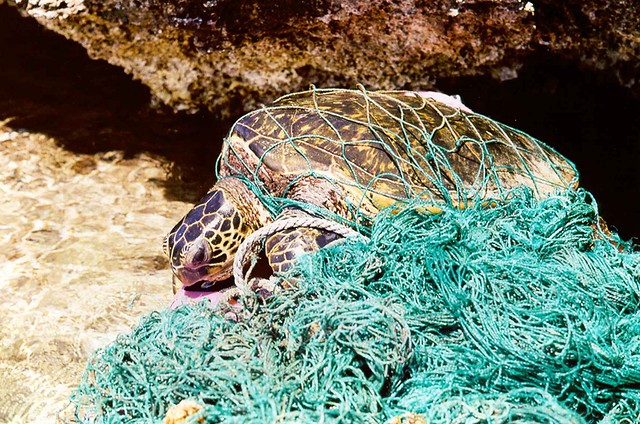
Do you think we can clean our way out of this mess?
I have my doubts, but that shouldn’t stop us from changing to healthier habits, such as living with zero waste or having people like Boyan Slat attempt to clean the ocean.
But wait up!
Don’t just go out and shop for all the new products and cool gadgets that are zero waste.
Check if you can reuse some of the items you already have. For instance, I just made my old backpack, which I used when commuting with my motorbike, into my zero waste day pack. The important thing is to create less waste and see if you can repair it reuse it and, lastly recycle it.
And be patient with yourself, this isn’t going to change from one night to another. The worst you can do is try to change it all in one go and then get overwhelmed and quit. We don’t want that.
Here is what’s in my zero waste kit.:
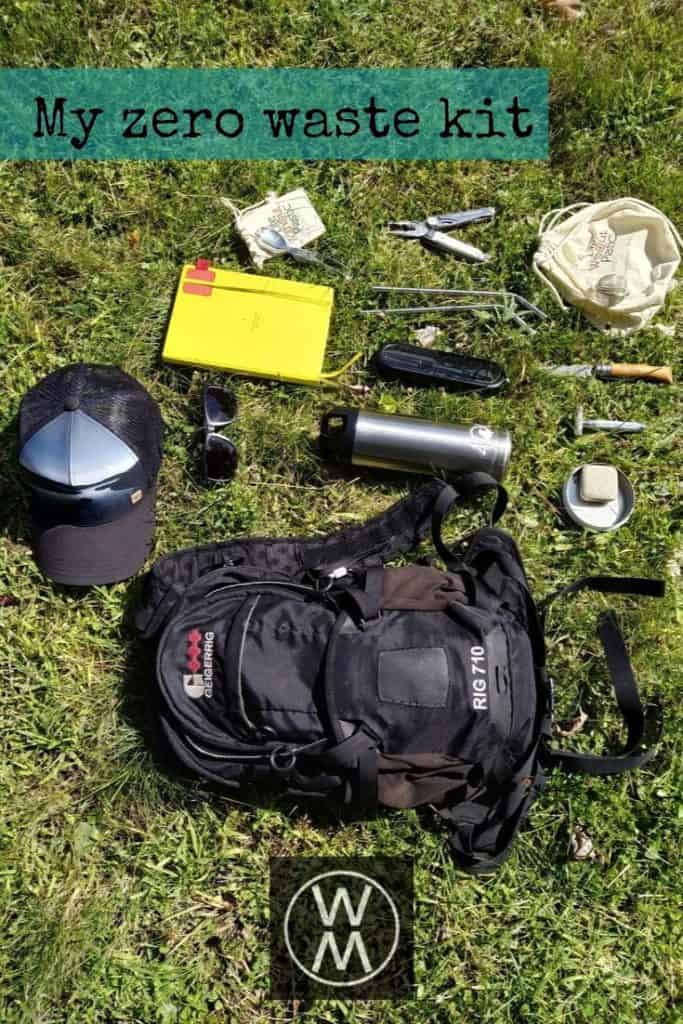
- See if you have forks in your kitchen drawer, and I am guessing you do. Take two of them and chuck them in your backpack.
- First zero waste item ticked off. ✔︎
- Do you have a Leatherman or an Opinel knife? Add it to your backpack.
- What about a reusable bottle? A glass bottle might do the trick if you don’t want to spend $30 – $100 on a fancy bottle. Yep, the LARQ bottle is $100, but it’s self-cleaning. Find out which bottle you should get in this article.
- Yes, my sunnies are made from plastic, but that’s OK, we can’t avoid plastic anymore and rather than throwing them away, buy a pair made from bamboo or something else that makes no sense.
You see, the zero-waste lifestyle comes with some challenges, but they are all achievable in time.
You can start cheap and easy with these items. The idea is not to fall into the trap of yet another hype. We all hope this zero waste hype will stay for good, but let’s learn more to become aware of daily habits.
Take your coffee habit, for example. Yes, the KeepCup is around $30, and, well, now you have to remember to bring a cup with you every time. It’s also made from glass, so if you throw it carelessly into your backpack, it might break. Perhaps taking the extra 20-30 minutes out of your busy day and enjoying the coffee at the cafe might do the trick?
Or, if you don’t have the time to do that, you can opt for a stainless steel cup.
Don’t get me started on those ubiquitous coffee pod machines. These plastic pods go straight to landfills, no one bothers to peel the aluminum and take out the coffee to recycle. 10 billion of those cups were sold in 2014
RELATED: Are Coffee Cups Recyclable?
Now once you are ready to commit because you want to save the turtles and let’s be a bit selfish here, you want to put fewer chemicals into your body, then I have the following tips for you:
Zero Waste Essentials
For when you are thirsty.
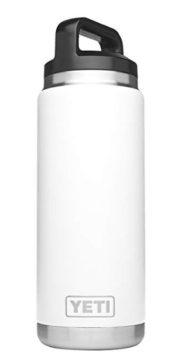
Why a reusable bottle?
Worldwide we buy 1.000.000 plastic bottles a minute.
That’s 20.000 per second.
60 million end up in landfills or in incinerators every day.
Less than 50 % is collected for recycling, 7% is made into new bottles, and all leach endocrine-disrupting chemicals into your drink, especially when you add hot liquids to a plastic container.
You can learn more here.

Why a reusable coffee cup?
Disposable paper cups contain 5% polyurethane plastic, making composting and recycling disposable cups extremely rare.
Half a trillion disposable cups are manufactured annually around the world; that’s over 70 disposable cups for every person on the planet. It is estimated Australians use 1 billion disposable coffee cups each year.
Remember how I mentioned hot liquid in plastic containers before? Well, that is what your “paper” cups are, plastic containers that leach chemicals.
You could also use glass jars with a mouth lid for your coffee.
For when you are hungry:
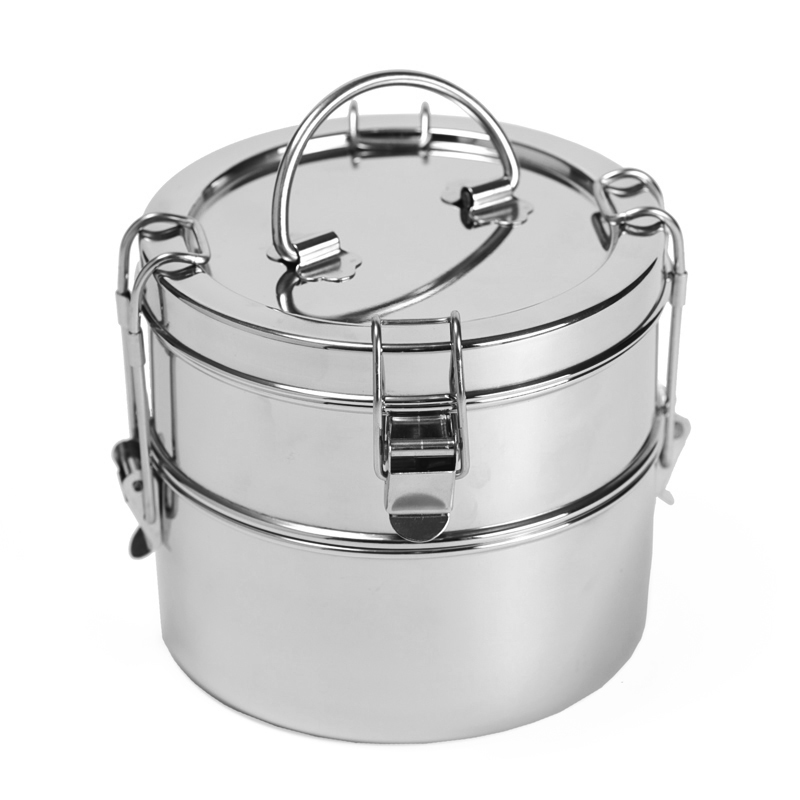
Why a stainless steel food container?
Most plastic used in the world today is for single-use items. Why not bring your own container?
Consumer waste has increased more than tenfold over the 20th century, from 40kg to 560kg of waste per person, per year.
There are 8.3 billion tons of plastic in the world.
Every piece of plastic made over the last century is still present somewhere on our planet.

Why a tote bag?
About one trillion single-use plastic bags are used annually across the globe. That’s nearly 2 million every minute.
Plastic bags are often confused as food for wildlife. They break down into Microplastic like any plastic.
They sink to the bottom of the ocean floor.
Related: The Dangers of plastic food containers

Why Stainless Steel Straw
In the Los Angeles area alone, 10 metric tons of plastic fragments—like grocery bags, straws, and soda bottles—are carried into the Pacific Ocean every day.
8.3 billion plastic straws pollute the world’s beaches. Americans use 500 million straws daily.
Eight million tons of plastic flow into the ocean every year, and straws comprise just 0.025 percent of that. ~ national geographic
The more we can reduce single-use items, the better.
Remember, it’s mainly about buying less and when you buy, choose quality over quantity.
Isn’t it nice to get something of emotional value handed down after it has been used for years by a close friend or family member? The item becomes so much more valuable, and you are going to look after it much more.
I feel this is a big problem in our society, we have been so accustomed to having disposable items. Use it and then throw it away. This is also called a linear economy.
Zero Waste Kitchen

Why cotton towels/unpaper towels?
Paper napkins are an accidental product carried on by the industry and marketed as a great disposable product, but it’s not.
4 billion trees, or 35% of the total trees chopped down, are used in paper industries.
1 tonne of paper consumes 98 tonnes of resources in manufacturing. Globally, we consume nearly 300 million tonnes of paper each year, most made from virgin pulp.
70% of the world’s paper comes from diminishing forests, not from plantations or recycling.

Why a reusable coffee cup?
Disposable paper cups contain 5% polyurethane plastic, making composting and recycling disposable cups extremely rare.
Half a trillion disposable cups are manufactured annually around the world; that’s over 70 disposable cups for every person on the planet.
It is estimated Australians use 1 billion disposable coffee cups each year. That’s approximately 2,700,000 paper coffee cups thrown out.
Due to health risk concerns, very little recycled paper is used to make disposable cups.
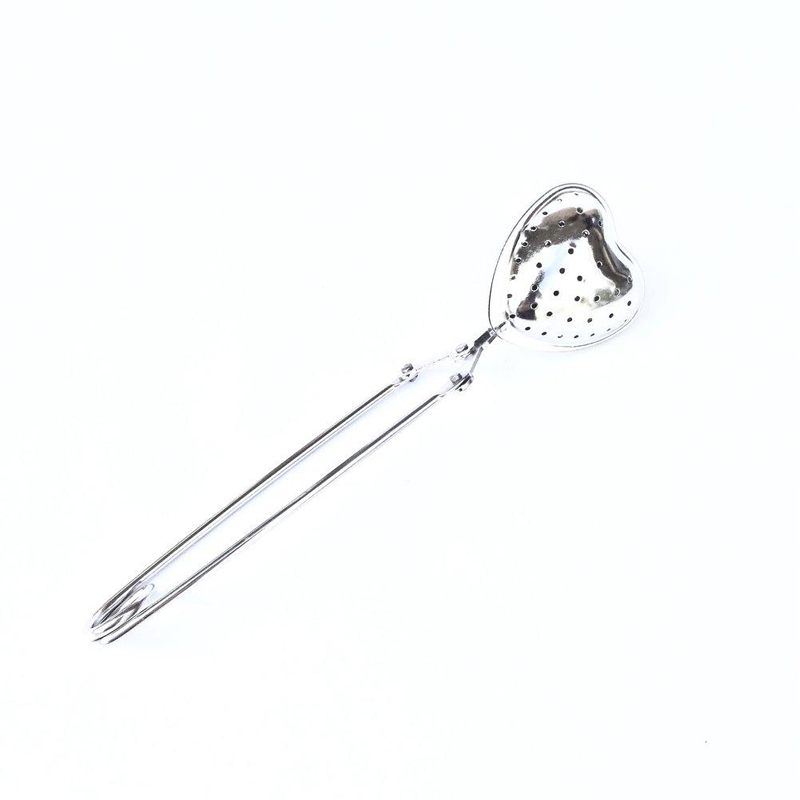
Why a Tea strainer?
Some bags have heat-sealable thermoplastic such as PVC or polypropylene as a component fiber on the inner tea bag surface, and other bags are made from nylon.
Paper tea bags are commonly sealed using polypropylene, a plastic known as an endocrine disrupter.
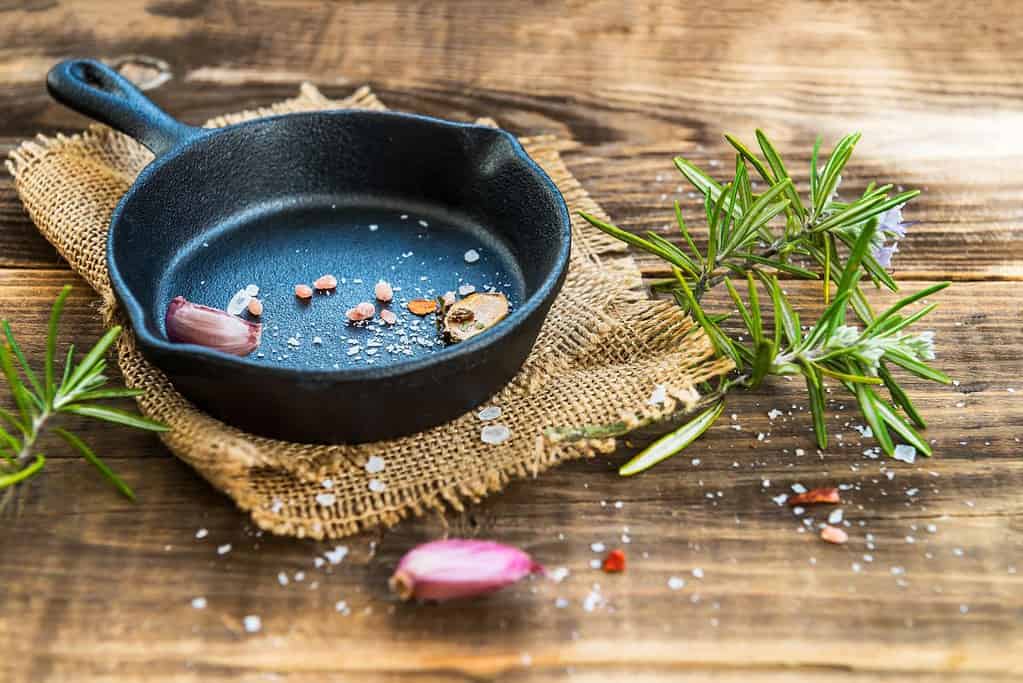
Why cast iron pans?
Teflon pans are coated with polytetrafluoroethylene, wow, that’s a mouth full. The problem is this anti-stick coating can flake off and be ingested.
Perfluorooctanoic acid, or PFOA, which is a suspected carcinogen, is still used in some cheaper brands.
Teflon toxicity causes polymer fume fever, a temporary, intense, though not very serious influenza-like syndrome.
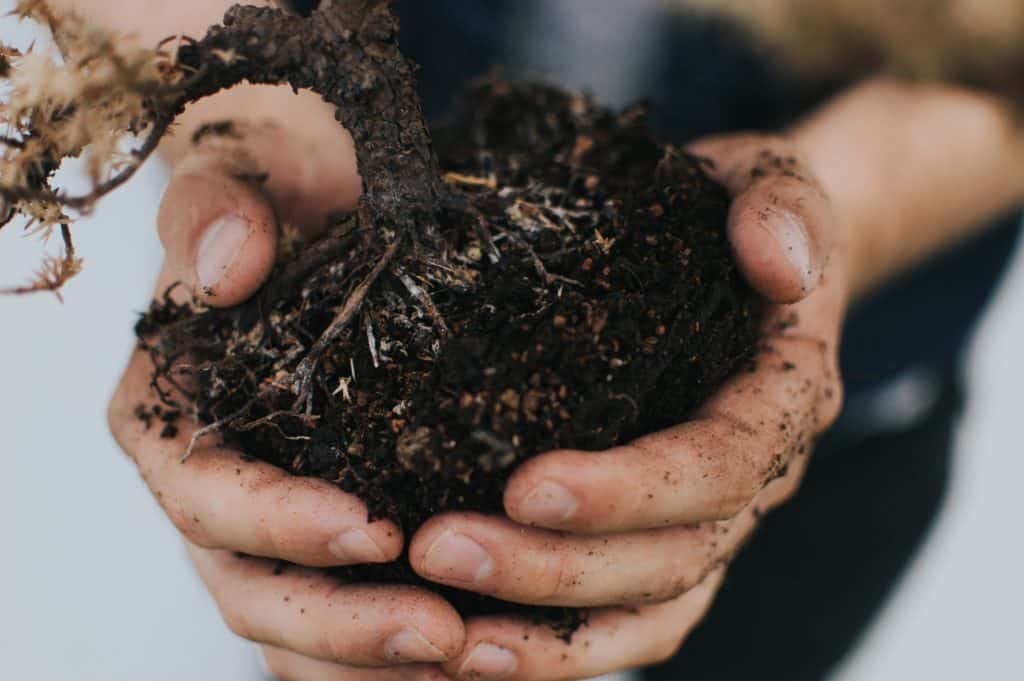
Why composting?
Less food waste in landfills, where it can’t break down properly due to its anaerobe nature.
Great for your plants – soil health, nutritious.
Adds to the creation of new, nutrient-rich soil.
Reduction in overall greenhouse emissions.
Composting betters overall air quality. Fertilizes and deters garden pests.
FoodCycler for small Apartments – Bokashi composting
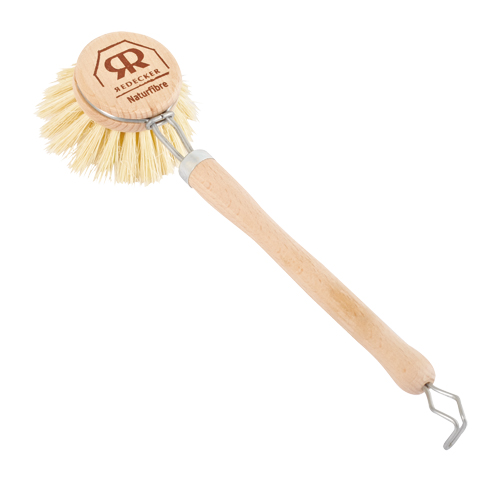
Why Dishbrushes?
It’s basically a big toothbrush.
It adds to landfills.
It is a biodegradable option for you and the planet.
Redecker’s handcrafted dish brush is made with sustainably harvested wood and stiff Tampico plant fibers. It has a removable head so you can save the handle when the brush wears out. And No Plastic.
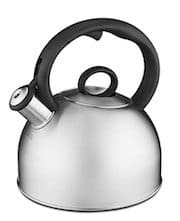
Why a Steel Kettle?
We know that all plastics leach chemicals. Especially harmful when in contact with boiling water.
The easiest way to avoid drinking water mixed with chemicals is to boil it in a steel or glass kettle.
Some additional tips for cleaning your home.
Most of the time, we are sold cleaning products for all sorts of different uses. You need a product for your windows, a different product for your stove, and another just to wipe the kitchen counter. Well turns out most of these can be replaced by one single product. Drumroll here; White Wine Vinegar.
I know you probably hoped for something a bit more exciting than vinegar, but that’s it. If you check out Lauren Singers’ Trash is for tossers Blog, you’ll find that she loves the simple vinegar cleaning method.
Here is the recipe:
- fill a spray bottle halfway with water
- top up with distilled white wine vinegar
- (Optional) Add some essential oil drops 15-20
Happy Cleaning.
Zero Waste Bathroom
I guess I am a bit of a minimalist, but I think most men are when it comes to the bathroom. We usually don’t spend a lot of time on them unless we have an excellent book to read.
Perhaps one of the coolest items which I happen to build was the squatty potty. If you have never heard of this, go ahead and watch this hilarious YouTube Ad.
Apart from healthy squatting and not using your toilet as a magic bin, here are some easy zero-waste bathroom swaps that may help to go zero waste in your bathroom:
A more in-depth article is 21 essential swaps for a zero waste bathroom.
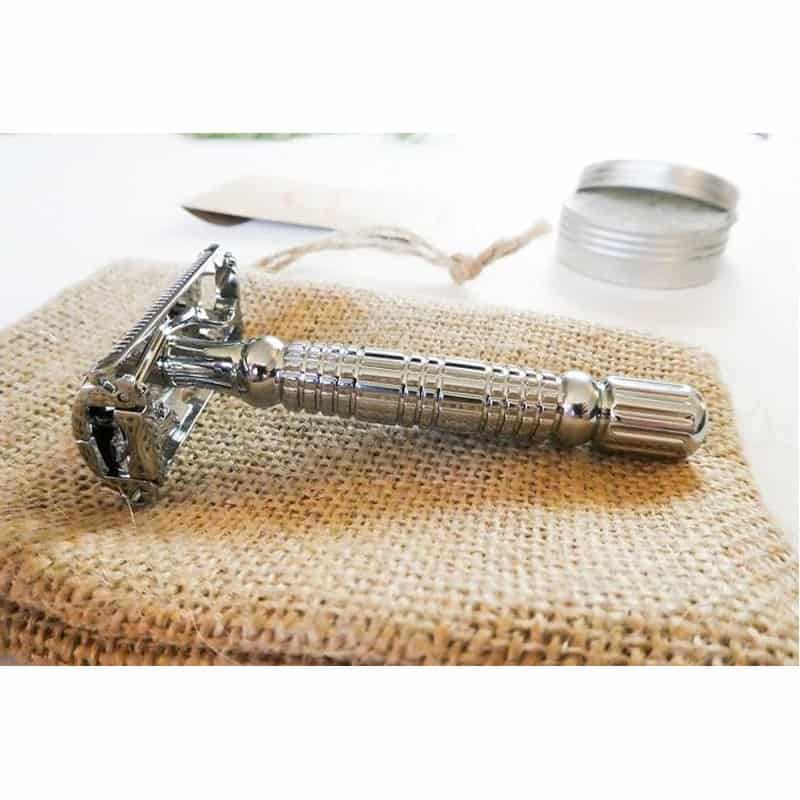
Why a safety razor?
Two billion plastic razors are thrown away each year. A great zero waste alternative is… you guessed it, safety razors.
We own two, the Leaf Razor and this one. They are both excellent, and if you would like to watch a review I made on youtube about it, please click here.
Only 9% of plastic is recycled; by 2050, there will be more plastic than fish in the sea ( by weight).
They are a beautiful, sustainable alternative. Gender neutrally recyclable.

Why cotton swabs?
Some are made from plastic and slip through the recycling machines just like straws, they are too small for collection.
You can avoid them entirely since the ear cleans itself.
If you prefer to clean your ears or use them for other fancy stuff, get some that don’t last forever.

Why a bamboo toothbrush?
Plastic toothbrushes are a non-recyclable item and clog up our landfills.
Bamboo is a sustainable plant. Although most bristles on your bamboo toothbrush are not biodegradable, you are still much better off with bamboo.
Personally, I pull the used bristles out and discard them in the bin before I compost my toothbrush.
But I am an eco nerd 😉

Why Toothtablets?
Kick that plastic toothpaste tube to the curb and switch to sustainability with the Natural Toothpaste Tablets from Georganics!
Made from high-quality natural and organic ingredients free of fluoride, SLS, and glycerin, this naturally foaming product kills bacteria and promotes fresh breath and healthy teeth and gums.
With a vegan and certified cruelty-free formula, plus plastic-free packaging, this toothpaste alternative is the perfect addition to your natural oral care routine.
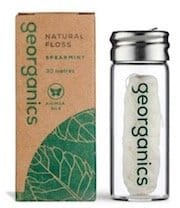
Why a Silk Floss?
Every year our empty containers alone would fill a landfill the size of a football field that’s 6 stories high—just for the empty floss dispensers!
Floss is generally made from nylon, which is a type of plastic. The best zero waste option is a silk floss.
Grinding plastic thread between your teeth, you are witnessing the creation of microplastic. You will swallow some and spit some in the ocean.
It is too small for the waste management system to catch. The containers are made from polypropylene and often go straight to landfills.
Here is one solution in a glass container, but I also used one that was entirely made of cardboard, and it lasted forever.

Why a Shampoo Bar?
Shampoo bars are package-free and very concentrated. They will outlast two or three bottles of your standard supermarket shampoo because they add a lot of water.
Shampoo bars are great for travel and offer a low carbon footprint they are multi-purpose.
Reveal your best hair with the Charcoal Natural Shampoo Bar from Plum Brilliance. Handcrafted with castor oil, tea tree, and bamboo charcoal – this product comes without any extra plastic packaging or nonsense for your most minimal experience.
The charcoal promotes hair growth, while the tea tree removes excess oil, and the castor oil helps balance your scalp’s pH and undo the damage. Plus, it contains no sulfates, parabens, chemicals, or additives!
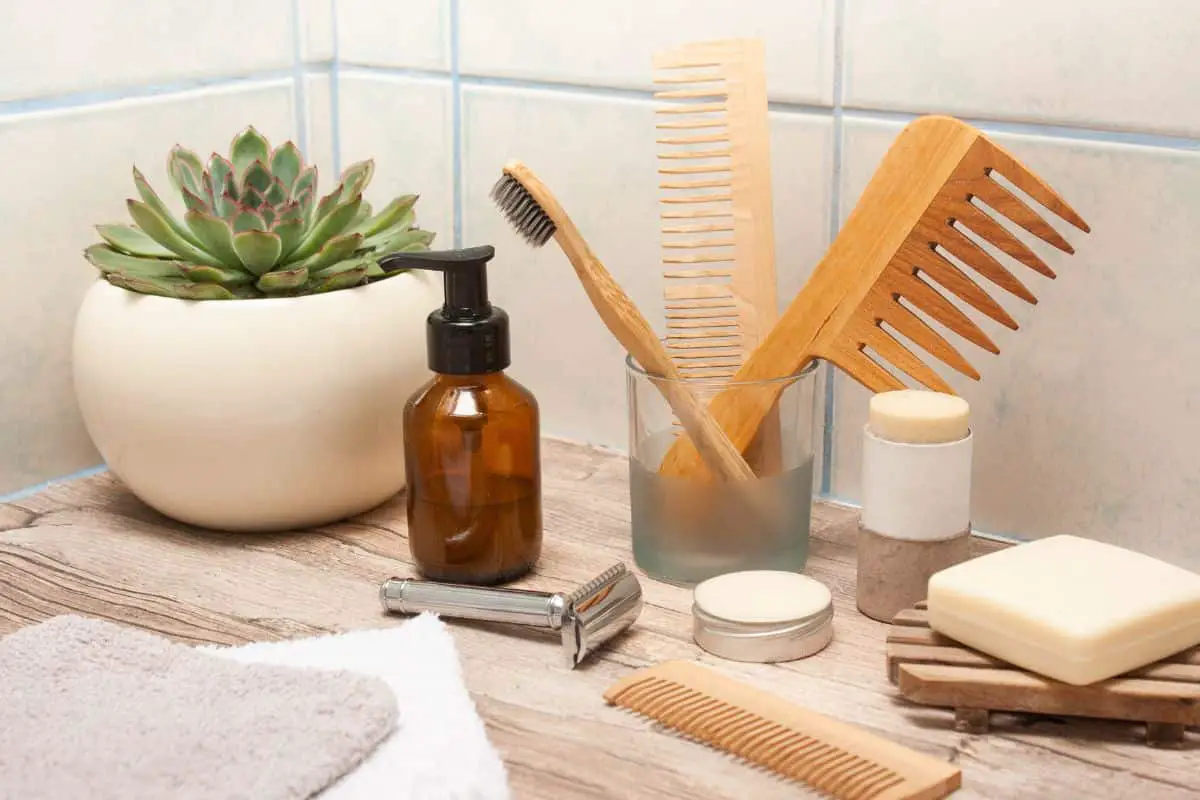
Zero Waste Office
How much time do you spend in your office? Does it look like an inviting workplace where you want to spend 8 hours of your day? I reckon the best part here is to declutter.
Having a clean desk can make you think more clearly and get more done. Since I am moving around a lot and I found my desk in Ottawa this week, I’ll be in Montreal next week, I will keep it very minimalistic.
My latest purchase was a fountain pen, but they only become a zero-waste item when you use them with a refillable ink cartridge. Now, why would you go through all this hustle? Almost every time, I return with blue fingers after my refill. Perhaps I’m doing it wrong?
This will look a little bit different if you work in an office.
Related: Zero Waste Office | 31 days to zero waste challenge
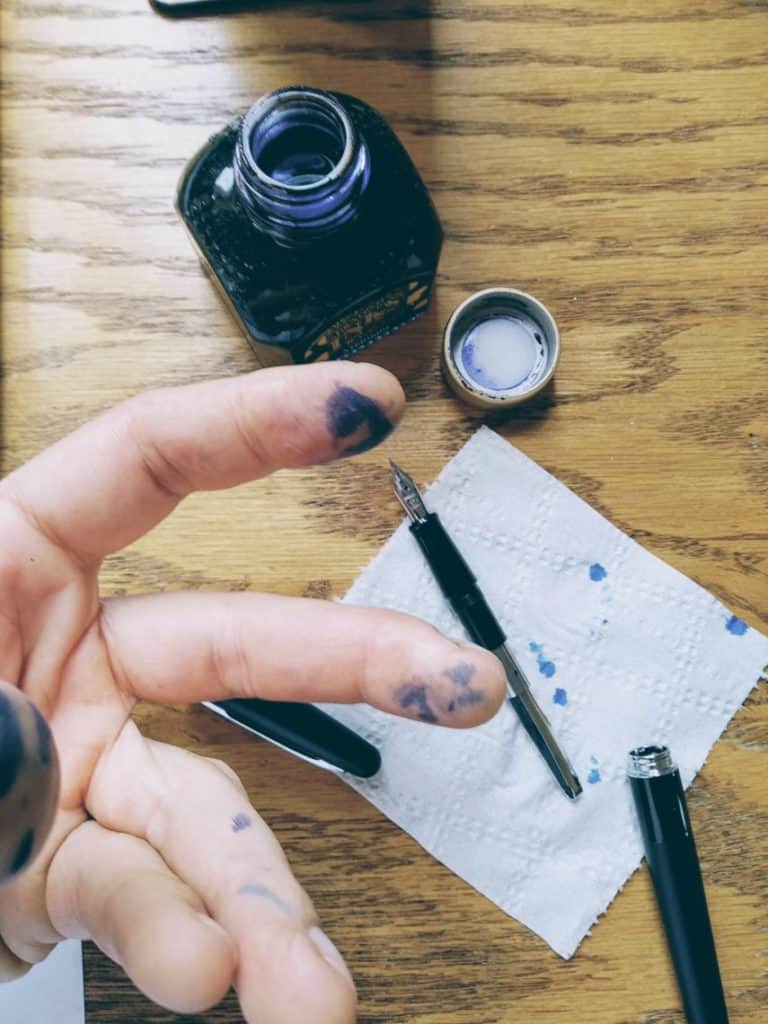
Why a Fountain Pen?
2 billion pens are manufactured in the US each year. Apparently, 1.6 billion are thrown away each year.
The most famous one, the Bic Cristal, sells 14 million per day. Insane if you ask me.
I have a love-and-hate relationship with my fountain pen. Apparently, I have been doing the refill wrong all these days. But find out for yourself in this video.
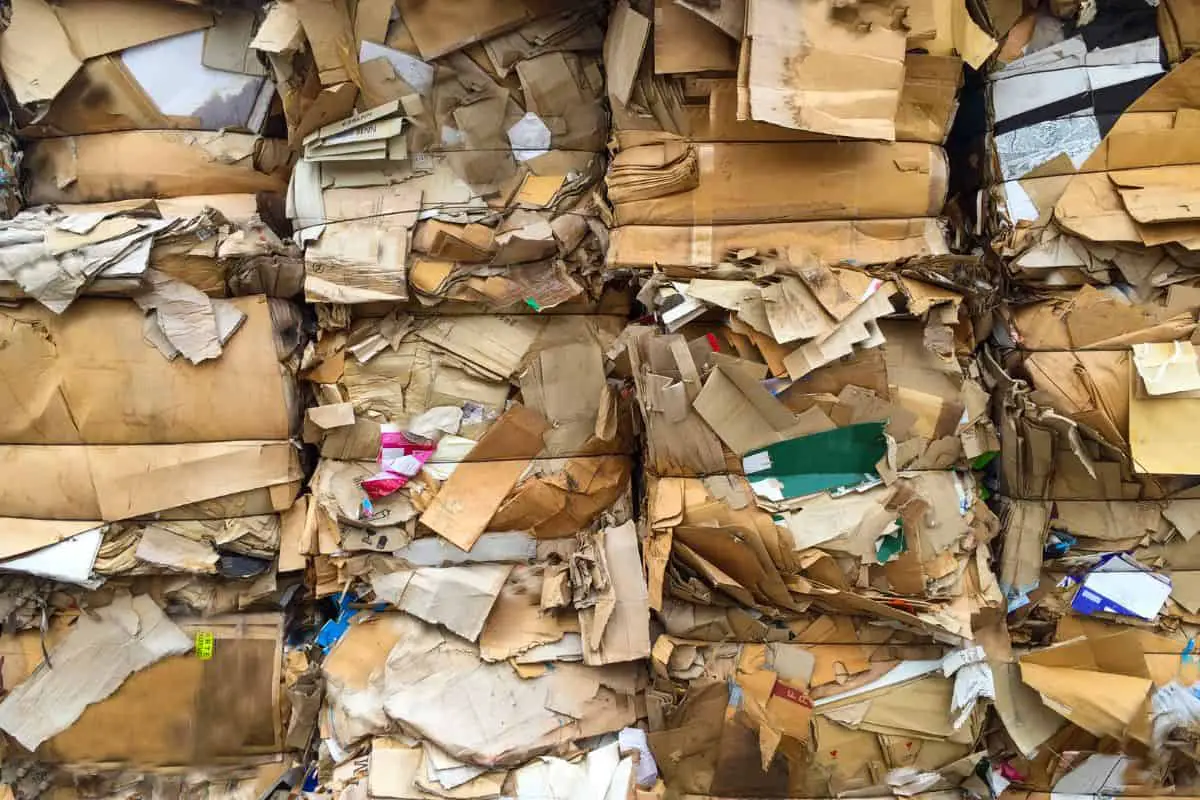
Why Recycled Paper?
- 4 billion trees, or 35% of the total trees chopped down, are used in paper industries
- 1 tonne of paper consumes 98 tonnes of resources in manufacturing.
- Globally, we consume nearly 300 million tonnes of paper each year, most made from virgin pulp.
- 70% of the world’s paper comes from diminishing forests, not from plantations or recycling.
Zero Waste clothes
Do you like shopping for clothes? I can’t think of anything more boring than shopping for clothes. But, the problem with the clothing industry deserves a whole new article. If it’s not already enough to do now, do you want me to change my wardrobe as well?
OK, let’s take it this way. You don’t have to change your wardrobe for me because, hey, let’s face it, you are probably wearing clothes right now unless you are reading this in a Jacuzzi.
You don’t necessarily have to change your wardrobe here, for next time when you need some clothes, considered to go second-hand shopping. You can check out this article here if you want to find some ethical clothing brands.
Related: Second-hand clothes shopping online
The 5 Rs
All you need to do is be creative with what you already have we’re so accustomed to throwing everything away and just buying it used since it’s so cheap but if you invest a little bit of money into quality products, not only are they more enjoyable the Beautiful the handmaid most of the time and then add to the quality of your life and you as a human being.
Since I’m German, I was used to hearing, huh, that is where the good quality is from. it made me proud even though I didn’t add to the whole industry in Germany I escaped Germany after a while, but that doesn’t mean, but it is still nice to see made in Germany on items because it represents quality, not quantity, it means something is made to last for a long time and if it breaks most of the time you can fix it stop
So be creative with the 5 RS reduce reuse, recycle refuse and rot.
Related the 5R’s
- Reduce
- Reuse
- Recycle
- Refuse
- Rot
All in all, it’s not rocket science, and in most cases, if you talk to your grandma or grandpa, that’s how they used to do things anyway. Sure, we have a couple more gadgets added to our busy lives, but going zero waste requires not that much. Sure the list here looks long, but the beauty about all these items is, that they are going to last a lifetime, and you are contributing to a circular economy instead of a linear one.
I hope you got some inspiration for your home/life, and I can’t wait to hear your ideas and thoughts on zero waste for beginners. So, if you got nothing better to do than sit in front of a screen, you might as well leave me a comment here and tell me what ideas you have to save the planet or your home, or just become totally zero waste.

Thank you Hendrik, for this great post. I like your layout on your website. This is a problem with a lot of people living primarily in America as we are taught at an early age to consume and waste in stead of responsibly use and save. With things like paper plates and disposable everything we think we are being cautious of the environment but we are just adding to the problem. I like how you have everything lined out in easy step by step processes to follow. Again thank you for the content and keep it up!
I appreciate your comment. Yes, let us all be more aware of how we consume and save the planet together. 🙂
Thanks! I appreciate what you said about, be patient with yourself. It’s better to make changes slowly and steadily, instead of rushing then getting overwhelmed then crashing.
So when did you get into the Zero Waste movement?
What are phthalates and how do you avoid getting them in your tea?
Did you ever try a squotty potty and does it work better?
Thanks!
Hi C, I have started my zero waste journey about a year ago. And to this day I am not 100% zero waste. I think it is impossible unless you live in a cave :). However, it is essential to use less single-use plastic since it benefits us for a couple of minutes and then stays in nature and potentially kills for years to come. Plus all plastic leaches chemicals, which we absorb.
Phthalate is a chemical compound, used to make PVC. You find them in packaging, food containers, pipes, but also cosmetic products and even your rubber ducky in the bathtub. Phthalates are endocrine disruptors, which are linked to fertility problems, obesity, breast cancer, liver damage the list goes on. Dr. Shanna Swan from the Univesity of Rochester can tell you even more.
Although I am not trying to advertise for the squatty potty itself, unless if it would be made from recycled materials. I think it is a much healthier way to poop. A little meditation seat does the same trick or a couple of books. My motto is to prevent now then try and fix it later.
The rate at which dirty that contains many plastic and nylon materials are disposed into the earth of the sea or river are defastating and annoying .I also want to join the zero waste group. Henceforth, I will make sure I checked everything things I used both at home and in the office. I will make sure they are all biodegradable and it should be nature friendly. For he plastic materials I have, I will make sure I take it to where they can be recycled. With that, I will be very happy that I contributed to the peace and health of the environment. Hope am able to adopt zero waste method with this habit?
Amazing Stella, you are doing yourself and the planet a great favor. If you’d like to discuss your ideas and questions with fellow zero wasters, please join the community that I am building at mighty networks.
A very nice post. Thank you for sharing it with us. I totally agree that we have made a huge mess. To fix it all up, it might take a long, long, long time, but at least we can from now on change our habits.
Yes, Yama, that’s it. Every little step counts. I think this is our chance to show the world that we are all one, and we all share this beautiful planet. 🙂
Thank you for the very informational and thoughtful post Hendrik. I’ve traveled to a lot of countries where plastic waste has washed up on to the beach and it is just devastating to see. The sheer volume of it is astounding. The tips you have suggested for becoming zero waste are very attainable and inexpensive. I like that you propose just doing a little bit at a time so that the task isn’t so overwhelming! I will definitely be starting with more eco-friendly options for cotton swabs!
That is excellent news, Jessica, I am glad I could inspire you a little. It is quite amazing to see what difference we can make from just refusing straws or having a reusable bottle. I love mine, and I take it everywhere I go. You can even use it for self-defense, haha.
Hi, I thoroughly enjoyed this article. I do practice some zero waste and try to add as I go along. I like the idea of a zero-based pack to contain and take with you some necessary plus useful items rather than consumerize everything you use and purchase in a given day. I have changed how I purchase food and try to buy at markets where I don’t need or get plastics. That can be a huge change. I live in an apartment and have been trying to do more homesteading kind of stuff like using jars, cooking from scratch and being simplistic in my approach to life. It is always a new lesson.
Thanks for all the good information and reminders
That is awesome to hear. Every little step helps. I love my zero waste kit, which makes me feel like a bit of an eco-warrior, and it’s so easy to make. I got an article on apartment composting, which might be helpful to you?!
Very informative post, I really like the way you have enunciated various Zero Waste Products. You have some great suggestion, I am definitely going to look at Shampoo Bars and bamboo toothbrush. Plastic is definitely a huge concern, as you quoted “By 2050 we will have more plastic in the sea that fish” – This is staggering and worrisome, It is the responsibility of us citizens to ensure we save this planet for our future generations. I really wish this post reaches to each individual and makes them realize that there is a sense of responsibility they have towards planet earth.
I couldn’t agree more with you. We have the power just by changing how we consume, the companies will follow. But it needs to happen now!
Thanks for such a great range of information! I currently recycle as much as I can, reuse plastic bags, try to purchase loose vegetables, avoid plastic bottles, compost, save electricity, and do I notice I reasonably can. I could do more, though, especially when possible in the future.
There are some really interesting ideas on here, and it’s easy to see how some of these are closely related to health – my passion! I used to know that paper was a major cause of deforestation, but never realised that it contributes to over 1/3 of the problem!
You’re doing some great work, keep it up and keep encouraging others 🙂
James
Thank you so much, James, fellow zerowasteman 🙂 When I first learned about the dangers of plastic, I couldn’t believe that we still wrap our food in this product. So glad we have plenty of alternatives. We only have to spread the message.
Hi Hendrik, thank you for such an important subject that you are covering here. I have to agree that the way how people worldwide use plastics are going out of hand. Later or sooner people will have to switch only to zero waste. It is our liability to do so. Unfortunately, some big companies and corporations not much supporting that as it goes against their business, but I think it will anyway happen. Your post is very helpful for people!
Thanks, Elmar. Yeah, the big Coca Cola, which is the number one polluter out in the world. They could go back to glass bottles and use a refund system like in Germany. I know change is happening, but it needs to happen now! Thanks for your support!